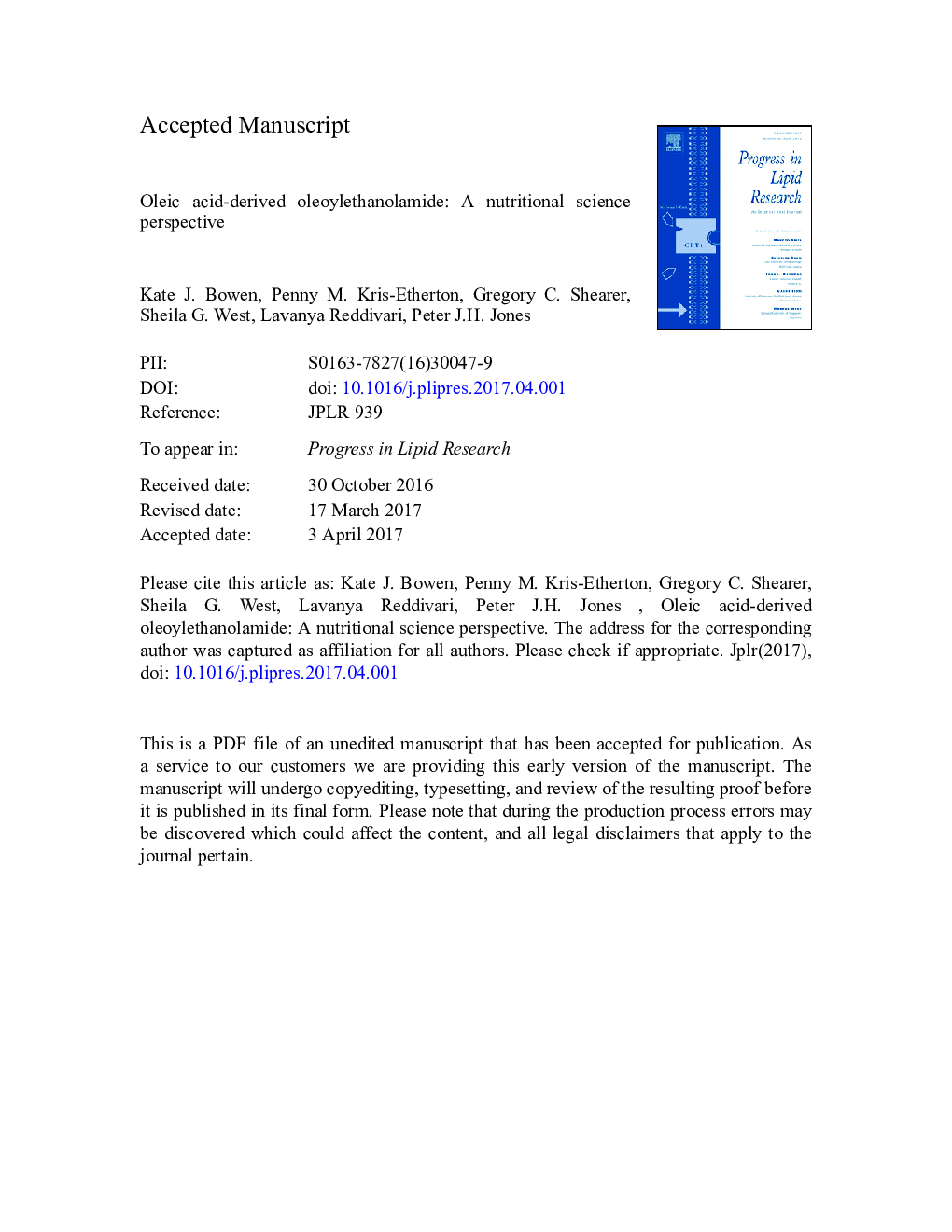| Article ID | Journal | Published Year | Pages | File Type |
|---|---|---|---|---|
| 8358835 | Progress in Lipid Research | 2017 | 57 Pages |
Abstract
The fatty acid ethanolamide oleoylethanolamide (OEA) is an endogenous lipid mediator derived from the monounsaturated fatty acid, oleic acid. OEA is synthesized from membrane glycerophospholipids and is a high-affinity agonist of the nuclear transcription factor peroxisome proliferator-activated receptor α (PPAR-α). Dietary intake of oleic acid elevates circulating levels of OEA in humans by increasing substrate availability for OEA biosynthesis. Numerous clinical studies demonstrate a beneficial relationship between high-oleic acid diets and body composition, with emerging evidence to suggest OEA may mediate this response through modulation of lipid metabolism and energy intake. OEA exposure has been shown to stimulate fatty acid uptake, lipolysis, and β-oxidation, and also promote food intake control. Future research on high-oleic acid diets and body composition is warranted to confirm these outcomes and elucidate the underlying mechanisms by which oleic acid exerts its biological effects. These findings have significant practical implications, as the oleic acid-derived OEA molecule may be a promising therapeutic agent for weight management and obesity treatment.
Keywords
A:GPLCT2DFAAHNAPE-PLDDXAsPLA2NEFAL-FABPPPAR-αFABPabhd4EEAUCPN-acylphosphatidylethanolamineN-acylethanolamineArachidonoylethanolamideN-AcyltransferaseNAAADocosahexaenoylethanolamideDHEAINSIG-1N-acylethanolamine-hydrolyzing acid amidaseFatty acid translocase/cluster of differentiation 36TRPV1NAEpalmitoylethanolamideoleoylethanolamideAEANATLEAMUFAFFAPEASFAFAT/CD36OEAFatty acid amide hydrolaseOleic acidSecretory phospholipase A2Free fatty acidsaturated fatty acidNon-esterified fatty acidPolyunsaturated fatty acidmonounsaturated fatty acidPUFAEnergyChoGDEdual-energy X-ray absorptiometryintraperitonealBody compositionType 2 diabetesDietary fatphospholipase CLipid metabolismVeANAPEFatty acid binding proteinUncoupling proteinliver fatty acid binding proteinSingle nucleotide polymorphismSNPCarbohydrateGlycerophosphodiesteraseperoxisome proliferator-activated receptor α
Related Topics
Life Sciences
Agricultural and Biological Sciences
Food Science
Authors
Kate J. Bowen, Penny M. Kris-Etherton, Gregory C. Shearer, Sheila G. West, Lavanya Reddivari, Peter J.H. Jones,
